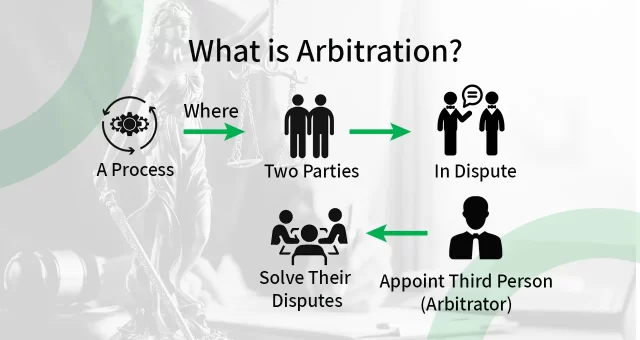Disagreements among parties, such as investors, shareholders, employees, and management, in any company including multinational corporations are common. Resolving such disputes through the courts and tribunals can be not only costly but also lengthy while causing huge impacts on business and personal relationships. Instead, you should go for resolving such disagreements as quickly as possible at lower costs without going to court. And, arbitration is the best way to do so. In this blog, we will explain Arbitration and Dispute Resolution in Kenya, its regulatory framework, and the probable challenges to encounter in dispute resolution. Let’s begin.

What is Arbitration?
Arbitration refers to a dispute situation when parties choose an impartial intermediary to resolve the case and agree to be bound by the decision of the arbitrator once the person finishes hearing all the parties. According to the Constitution of Kenya 2010, arbitration is a great alternative to going to courts or tribunals for dispute resolution.
Arbitration is encouraged for private, commercial, and civil disputes but is not suitable for all types of disputes. For example, arbitration cannot be used to enforce rights under the Constitution or determine whether a law is constitutional.
Furthermore, arbitration can be completed in private if the parties want to keep their disputes out of the public eye. Parties can decide the number of independent arbitrators to resolve their dispute as well as choose those independent arbitrators. Parties will require a good commercial law firm to conduct the case on their behalf. Parties can challenge the decision of the arbitrator in court if dissatisfied.
Arbitration and Dispute Resolution: Regulatory Framework in Kenya
The Constitution of Kenya 2010, recognizes arbitration as an alternative dispute resolution mechanism. The Constitution promotes the use of alternative dispute resolution methods, whenever possible, including arbitration.
The next key law is the Arbitration Act of 1995 in Kenya, which provides for how arbitration works. For instance, the agreement to arbitrate disputes must be in writing, that is either through arbitration clauses in contracts or a separate agreement between parties. Furthermore, this law allows parties to ask the court to put on hold an ongoing court case where there is a proper arbitration agreement to enable the dispute to be taken to arbitration. Also, the Act sets out the freedom of parties to decide how many arbitrators they need to resolve the dispute, how to appoint them and even challenge the appointment.

Challenges in Dispute Resolution
Despite a strong regulatory framework, there are some common challenges arbitrators face in dispute resolution, such as:
- Lack of cooperation from the parties
- Procedural challenges
- Need for court assistance in enforcing decisions
Regardless of the reasons, arbitrators cannot compel third parties who have not agreed to arbitration to do anything. This is why it is important to take legal advice on the suitability of arbitration to your dispute.
In Conclusion
When it comes to commercial disputes in Kenya, arbitration plays a significant role. And, whether you are a high-net-worth individual or a multinational corporation facing disputes and seeking efficient and practical legal solutions from skilled and expert lawyers, count on us. At KN Law LLP, we specialise in offering commercial dispute resolution services to our clients.


